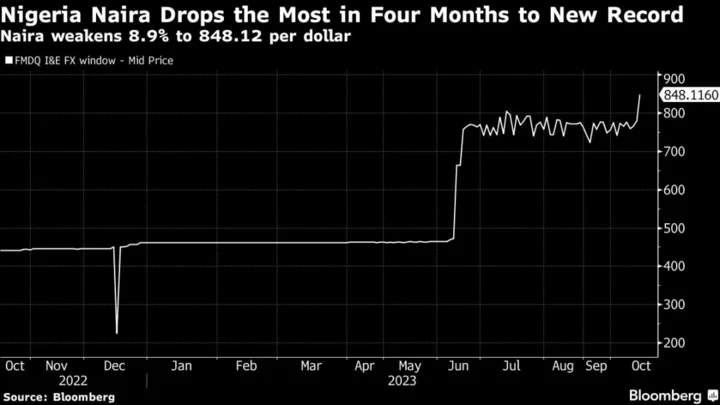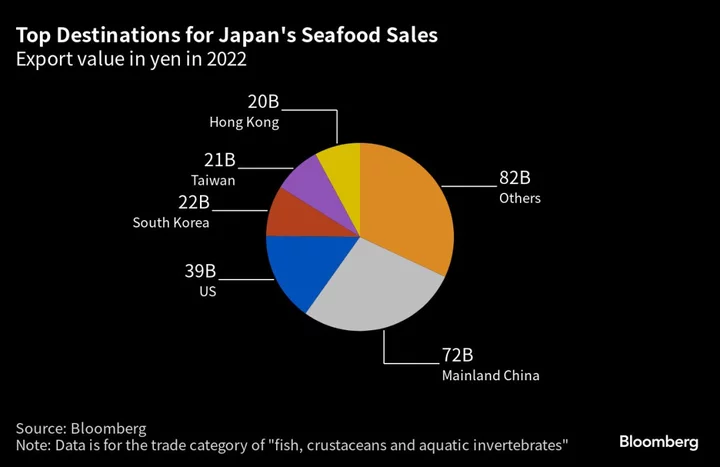Nigeria’s naira plunged the most in almost four months to an unprecedented level in the official market as the West African nation’s move to a more flexible exchange rate puts pressure on the currency.
The naira weakened 8.9% to 848.12 to the dollar in the official market on Tuesday, according to data compiled by Bloomberg. The drop was the most since June 20.
Trades in the foreign-exchange market were executed within the range of 700 naira to 981 naira per dollar, according to an investment note by Lagos-based investment banking firm Chapel Hill. The value of dollar traded jumped 2.12 times to $133 million, the firm said.
The currency was little changed at 1,052 a dollar on the street, according to Abubakar Mohammed, chief executive officer of the Forward Marketing Bureau de Change Ltd.
The Central Bank of Nigeria eased foreign exchange controls in mid-June after newly elected President Bola Tinubu criticized monetary policy measures and pledged an end to the nation’s multiple exchange-rate regime. That saw the official rate plunge 40%, briefly aligning with the parallel market before the spread began to widen again. Until Tuesday, the official rate stayed near 800 to the dollar even as the street rate weakened past 1,000 naira.
“Illiquidity persists in the market in the absence of central bank intervention,” Tajudeen Ibrahim, head of research at Chapel Hill, said by phone.
The widening premium between the official rate and the black market “indicates that the exchange rate has not been setting a clearing price,” the central bank said on Monday after it scrapped restrictions put in place eight years ago to manage demand for dollars.
Nigeria, Africa’s biggest crude producer, has been struggling to boost the supply of dollars for years after falling oil revenue left its foreign-exchange reserves in a perilous state. That prompted authorities to stop selling foreign currency to importers of products such as rice, vegetables and chicken in a bid to encourage local production.
The move only pushed demand for dollars to unauthorized trade.
(Updates with value of dollar transactions done in third paragraph)
Author: Anthony Osae-Brown and Emele Onu









